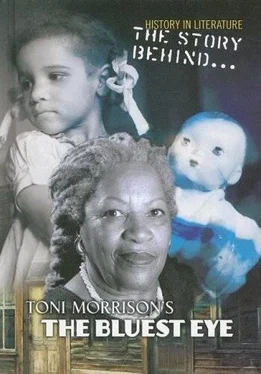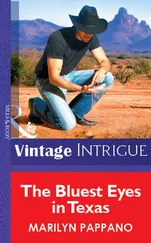Sunk in the grass of an empty lot on a spring Saturday, I split the stems of milkweed and thought about ants and peach pits and death and where the world went when I closed my eyes. I must have lain long in the grass, for the shadow that was in front of me when I left the house had disappeared when I went back. I entered the house, as the house was bursting with an uneasy quiet. Then I heard my mother singing something about trains and Arkansas. She came in the back door with some folded yellow curtains which she piled on the kitchen table. I sat down on the floor to listen to the song's story, and noticed how strangely she was behaving. She still had her hat on, and her shoes were dusty, as though she had been walking in deep dirt. She put on some water to boil and then swept the porch; then she hauled out the curtain stretcher, but instead of putting the damp curtains on it, she swept the porch again. All the time singing about trains and Arkansas. When she finished, I went to look for Frieda. I found her upstairs lying on our bed, crying the tired, whimpering cry that follows the first wailings-mostly gasps and shudderings. I lay on the bed and looked at the tiny bunches of wild roses sprinkled over her dress. Many washings had faded their color and dimmed their outlines. "What happened, Frieda?" She lifted a swollen face from the crook of her arm. Shuddering still, she sat up, letting her thin legs dangle over the bedside. I knelt on the bed and picked up the hem of my dress to wipe her running nose. She never liked wiping noses on clothes, but this time she let me. It was the way Mama did with her apron. "Did you get a whipping?" She shook her head no. "Then why you crying?"
"Because."
"Because what?"
"Mr. Henry."
"What'd he do?"
"Daddy beat him up."
"What for? The Maginot Line? Did he find out about the Maginot Line?"
"No."
"Well, what, then? Come on, Frieda. How come I can't know?"
"He… picked at me."
"Picked at you? You mean like Soaphead Church?"
"Sort of."
"He showed his privates at you?"
"Noooo. He touched me."
"Where?"
"Here and here." She pointed to the tiny breasts that, like two fallen acorns, scattered a few faded rose leaves on her dress. "Really? How did it feel?"
"Oh, Claudia."
She sounded put-out. I wasn't asking the right questions. "It didn't feel like anything."
"But wasn't it supposed to? Feel good, I mean?" Frieda sucked her teeth. "What'd he do? Just walk up and pinch them?" She sighed.
"First he said how pretty I was. Then he grabbed my arm and touched me."
"Where was Mama and Daddy?"
"Over at the garden weeding."
"What'd you say when he did it?"
"Nothing. I just ran out the kitchen and went to the garden."
"Mama said we was never to cross the tracks by ourselves."
"Well, what would you do? Set there and let him pinch you?" I looked at my chest. "I don't have nothing to pinch. I'm never going to have nothing."
"Oh, Claudia, you're jealous of everything. You want him to?"
"No, I just get tired of having everything last."
"You do not. What about scarlet fever? You had that first."
"Yes, but it didn't last. Anyway, what happened at the garden?"
"I told Mama, and she told Daddy, and we all come home, and he was gone, so we waited for him, and when Daddy saw him come up on the porch, he threw our old tricycle at his head and knocked him off the porch."
"Did he die?"
"Naw. He got up and started singing 'Nearer My God to Thee.' Then Mama hit him with a broom and told him to keep the Lord's name out of his mouth, but he wouldn't stop, and Daddy was cussing, and everybody was screaming."
"Oh, shoot, I always miss stuff."
"And Mr. Buford came running out with his gun, and Mama told him to go somewhere and sit down, and Daddy said no, give him the gun, and Mr. Buford did, and Mama screamed, and Mr. Henry shut up and started running, and Daddy shot at him and Mr. Henry jumped out of his shoes and kept on running in his socks. Then Rosemary Came out and said that Daddy was going to jail, and I hit her."
"Real hard?"
"Real hard."
"Is that when Mama whipped you?"
"She didn't whip me, I told you."
"Then why you crying?"
"Miss Dunion came in after everybody was quiet, and Mama and Daddy was fussing about who let Mr. Henry in anyway, and she said that Mama should take me to the doctor, because I might be ruined, and Mama started screaming all over again."
"At you?"
"No. At Miss Dunion."
"But why were you crying?"
"I don't want to be ruined'"
"What's ruined?"
"You know. Like the Maginot Line. She's ruined. Mama said so." The tears came back. An image of Frieda, big and fat, came to mind. Her thin legs swollen, her face surrounded by layers of rouged skin. I too begin to feel tears. "But, Frieda, you could exercise and not eat." She shrugged. "Besides, what about China and Poland? They're ruined too, aren't they? And they ain't fat."
"That's because they drink whiskey. Mama says whiskey ate them up."
"You could drink whiskey."
"Where would I get whiskey?" We thought about this. Nobody would sell it to us; we had no money, anyway. There was never any in our house. Who would have some? "Pecola," I said. "Her father's always drunk. She can get us some.' "You think so?"
"Sure. Cholly's always drunk. Let's go ask her. We don't have to tell her what for."
"Now?"
"Sure, now."
"What'll we tell Mama?"
"Nothing. Let's just go out the back. One at a time. So she won't notice. "
"O.K. You go first, Claudia." We opened the fence gate at the bottom of the backyard and ran down the alley. Pecola lived on the other side of Broadway. We had never been in her house, but we knew where it was. A two-story gray building that had been a store downstairs and had an apartment upstairs. Nobody answered our knock on the front door, so we walked around to the side door. As we approached, we heard radio music and looked to see where it came from. Above us was the second-story porch, lined with slanting, rotting rails, and sitting on the porch was the Maginot Line herself. We stared up and automatically reached for the other's hand. A mountain of flesh, she lay rather than sat in a rocking chair. She had no shoes on, and each foot was poked between a railing: tiny baby toes at the tip of puffy feet; swollen ankles smoothed and tightened the skin; massive legs like tree stumps parted wide at the knees, over which spread two roads of soft flabby inner thigh that kissed each other deep in the shade of her dress and closed. A dark-brown root-beer bottle, like a burned limb, grew out of her dimpled hand. She looked at us down through the porch railings and emitted a low, long belch.
Her eyes were as clean as rain, and again I remembered the waterfall. Neither of us could speak. Both of us imagined we were seeing what was to become of Frieda. The Maginot Line smiled at us. "You all looking for somebody?" I had to pull my tongue from the roof of my mouth to say, "Pecola-she live here?"
"uh-huh, but she ain't here now. She gone to her mama's work Place to git the wash."
"Yes, ma'am. She coming back?"
"Uh-huh. She got to hang up the clothes before the sun goes down."
"Oh."
"You can wait for her.
Wanna come up here and wait?" We exchanged glances. I looked back up at the broad cinnamon roads that met in the shadow of her dress. Frieda said, "No, ma'am."
"Well," the Maginot Line seemed interested in our problem. "Yo can go to her mama's work place, but it's way over by the lake."
"Where by the lake?"
"That big white house with the wheelbarrow full of flowers." It was a house that we knew, having admired the large white wheelbarrow tilted down on spoked wheels and planted with seasonal flowers. "Ain't that too far for you all to go walking?" Frieda scratched her knee. "Why don't you wait for her? You can come up here. Want some pop?" Those rain-soaked eyes lit up, and her smile was full, not like the pinched and holding-back smile of other grownups. I moved to go up the stairs, but Frieda said, "No, ma'am, we ain't allowed." I was amazed at her courage, and frightened of her sassiness. The smile of the Maginot Line slipped. "Ain't 'llowed?"
Читать дальше











